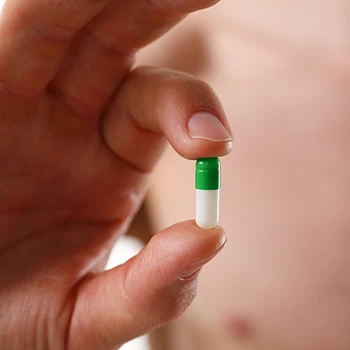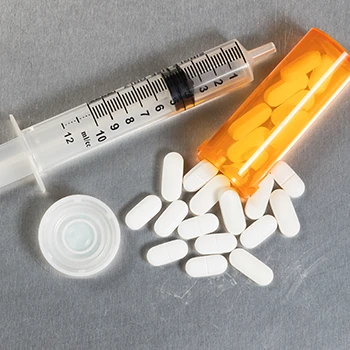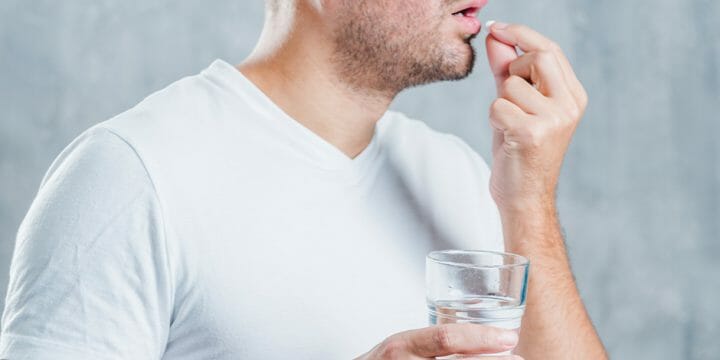During a professional seminar, I engaged with fellow medical experts on steroid misuse in sports, recalling cases I've encountered in my practice of athletes suffering serious side effects from these drugs.
However, what really captivated me was understanding the invention and current manufacturing processes of these drugs. Through my experience in pathology, I've learned it requires advanced pharmaceutical equipment.
Alarmingly, black market steroids often originate from unlicensed and questionable labs.
Let's delve deeper into this complex process.
Quick Summary
Are They Synthetically Or Naturally Made?

Anabolic steroids are synthetic versions of steroid hormones, including the male sex hormone testosterone, which are manufactured for medical purposes, but unfortunately, some people misuse anabolic steroids to promote muscle growth.
Steroids used for medical purposes are synthetic. While the body produces steroids naturally through different glands, it was the medical breakthrough in creating synthetic steroids that resulted in vast medical treatment options [1].
More on this shortly.
By creating substances that are almost identical to natural testosterone and corticosteroids, they can trick the body into responding in the same way that a natural boost would.
In my clinical observations, I've noted that natural, legal steroids derived from herbs, minerals, and amino acids don't provide a direct hormone boost, but they can be beneficial.
Let’s take a closer look.
Difference Between Natural And Synthetic Drugs
According to the Natural Library of Medicine, the main difference between natural and synthetic steroids is that the synthetic ones deliver an active compound that is almost identical to a hormone like testosterone or cortisol [2].
Natural steroids, per a 2021 study published in the Advances in Nutrition journal, contain ingredients that cause the body to trigger an increase in certain hormone production, like testosterone [3].
The result is that they don’t cause a sudden spike in hormone levels but rather gradually increase the amount released over several months.
That might not be a suitable option for dealing with certain health conditions, but it should be the preferred approach for athletes rather than resorting to illegal drugs.
“Natural steroids typically refer to compounds found in plants, herbs, and other natural sources that mimic human hormones or steroids.”
- Dena Westphalen, Pharm.D., MedicalNewsToday.com
Steroid Use Side Effects
While steroids, both synthetic and natural, are often used for their therapeutic benefits, it's crucial to understand the array of side effects they can induce.
Synthetic steroids
- Physical Health Problems: According to the Cleveland Clinics, synthetic steroids can lead to liver damage, heart attack, high blood pressure, acne, etc. [4].
- Addictive Nature of Anabolic Steroids: Anabolic steroids, despite not causing a high, can be addictive, according to the HSS journal [5].
- Health Risks for Teenagers: Teenagers are particularly at risk when using anabolic steroids, which may cause stunted growth and increase the likelihood of health problems in later life [6].
- Legal and Ethical Considerations in Steroid Use: The use of anabolic steroids in sports is widely banned, and obtaining steroids from non-medical sources is illegal. Illegally obtained steroids may be contaminated or mislabeled, posing serious health risks.
Natural Steroids
In line with studies such as the one in the International Journal of Health Science, my clinical experience also shows minimal severe side effects with natural steroids, though I advise caution [7].
Certain formulations might lead to hormonal imbalances, mood alterations, and interactions with other medications.
Quick History Of Steroids

In 1931, Adolph Butenandt in Germany made history by extracting testosterone from urine, earning a Nobel Prize for it [8].
Just four years later, Leopold Ruzicka from Switzerland also won a Nobel for synthesizing testosterone [9].
Their work paved the way for steroid drugs like Dianobol, created in 1958 by American Olympic doctor John Ziegler, a game-changer for treating low testosterone [10].
Since the 1970s, numerous steroids have hit the market, revolutionizing treatment for various diseases and recovery post-surgery.
Yet, this progress has its downside: athletes often misuse steroids, turning to the black market despite their prescription-only status.
Related Articles:
FAQs
What Are Common Types of Steroids?
Prednisolone, Anadrol, Dianabol, and Winstrol are the most commonly prescribed steroids. They have similar effects, but some of them have both anabolic and androgenic effects that require careful monitoring by doctors to ensure side effects are kept to a minimum.
Anabolic steroids affect the body by promoting muscle growth, but their misuse can lead to anabolic steroid addiction and withdrawal symptoms, which may include weight gain and mood swings.
Are There Natural Steroids in Food?
Yes, there are natural steroids in food and herbs like ashwagandha and fenugreek. These don’t directly introduce testosterone but rather influence how much the body naturally produces.
References:
- https://www.webmd.com/men/anabolic-steroids
- https://medlineplus.gov/anabolicsteroids.html
- https://pubmed.ncbi.nlm.nih.gov/33150931/
- https://my.clevelandclinic.org/health/treatments/5521-anabolic-steroids
- https://www.ncbi.nlm.nih.gov/pmc/articles/PMC2780436/
- https://www.getsmartaboutdrugs.gov/family/what-you-should-know-about-steroids-and-young-people
- https://www.ncbi.nlm.nih.gov/pmc/articles/PMC5870326/
- https://www.nobelprize.org/prizes/chemistry/1939/butenandt/biographical/
- https://www.britannica.com/biography/Leopold-Ruzicka
- https://physicalculturestudy.com/2018/08/02/a-brief-history-of-steroids/
About The Author
You May Also Like






